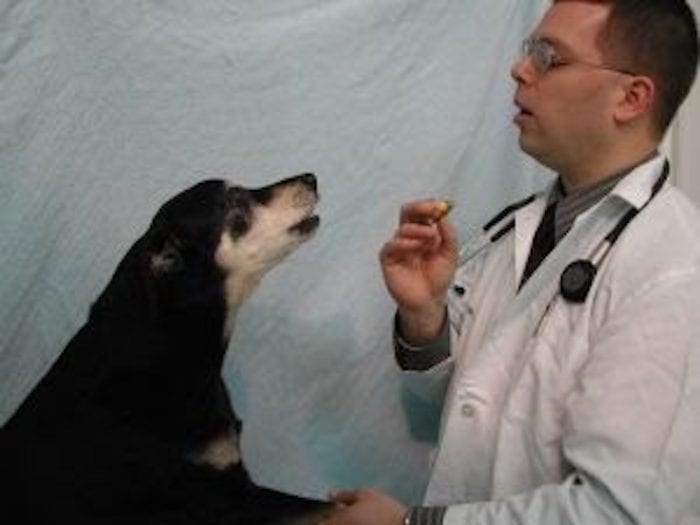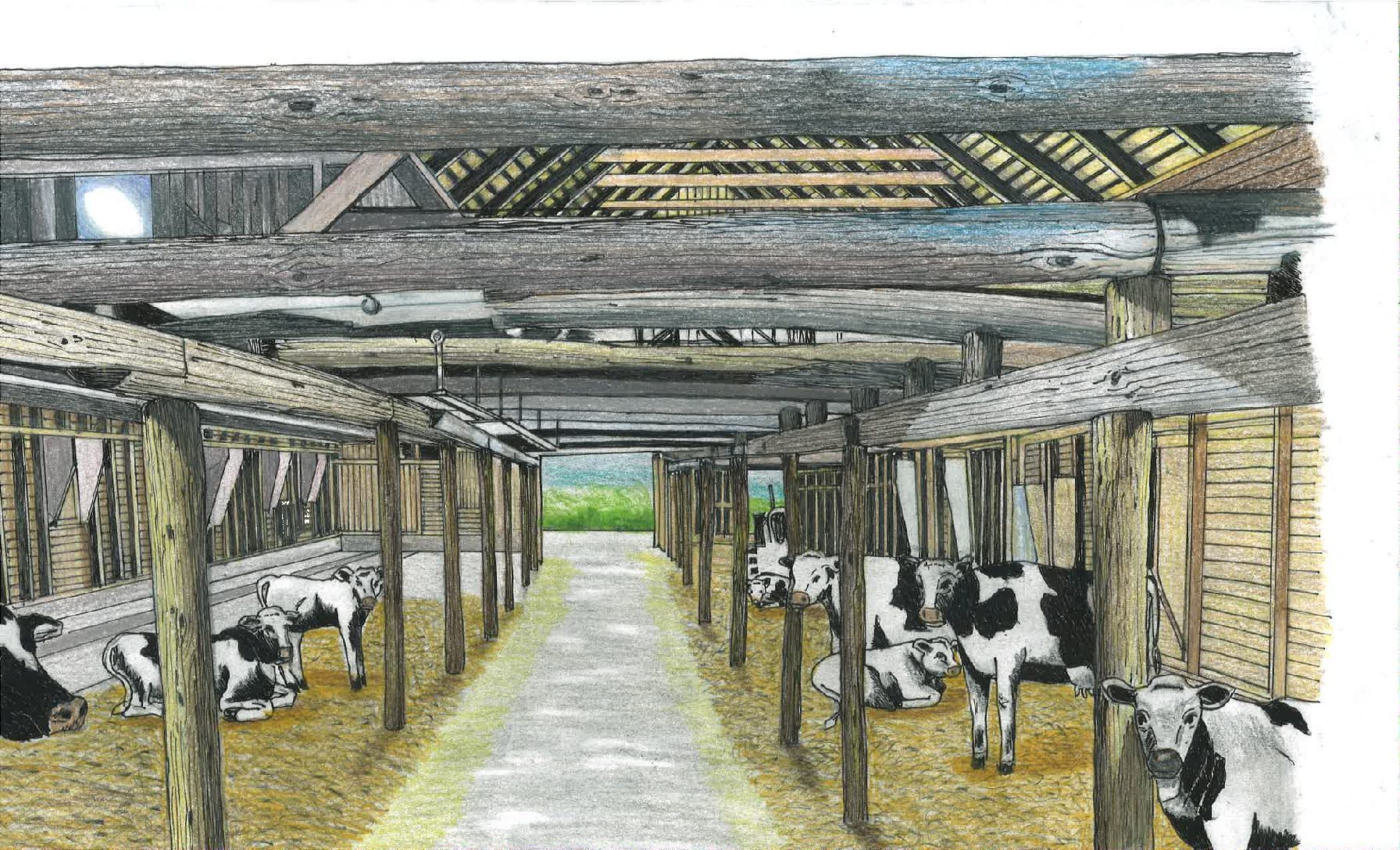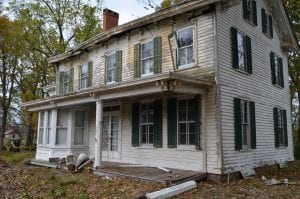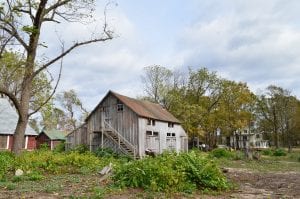By Chris Cumella
Social distancing has been accompanied by a loss of companionship that people yearn to have once again. Fortunately, pet-service workers have committed themselves to making sure people’s furry, feathered and scaly friends have remained healthy, even as the worst of the pandemic raged.
The coronavirus has completely shifted the social norms of being around other people, but pets have remained steadfast companions even as many people remained isolated from friends or family.
Suffolk Veterinary Group
Dr. Christopher Winkler, who heads up the Suffolk Veterinary Group clinic in Selden, explained that while COVID-19 has been difficult to navigate, it has been satisfying to help clients and their companions.
“It has been very gratifying to be able to help in this way,” Winkler said. “We are seen as frontline workers because we are managing medical for what people call their ‘fur babies.’”
He began working at the Suffolk Veterinary Group out of medical school, where the owner met him working at the local emergency room down the street. He would eventually purchase the practice in 2006, with his wife Nicole as a manager. The company prides itself on introducing laser surgery to its clinic in 2010 and since then has expanded the practice into their primary care services, such as airway procedures for pugs.
According to Winkler, pets fulfill a vital role in the family dynamic. He detailed how clients have told him that their pets help lower blood pressure and bring a calming presence during stressful times, especially now. The veterinarian is reassured that keeping all pets in good health “helps with the dynamic of the lockdown, the anxiety and possibly even the loss of family members.”
Animal shelters have had the difficult task making sure that creatures have warmth, food and love, all while having to cut down on staff. Many animals have come to these shelters from those who have passed due to COVID-19.
Save-A-Pet Animal Rescue
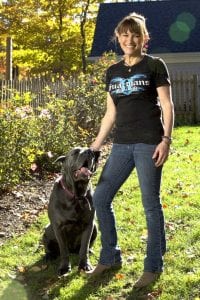
of SaveAPet Animal Rescue with a furry friend.
Photo from Scofield
From Port Jefferson Station, the Save-A-Pet Animal Rescue and Adoption Center takes in abused, abandoned and homeless animals and helps them find loving permanent homes. The organization offers programs in educating the public — especially children — on the importance of responsible pet ownership and humane treatment of all animals.
While feeding her horses and chickens at home during a phone call, Dori Scofield, president of Save-A-Pet, explained that her line of work had given her hope during these troubling times.
“Animals’ lives depend on all of us, and we strive on donations,” she said. “We are always here for the animals, and we hope the community is too so that we can help them.”
Working with cats, dogs, rabbits, ferrets and more, Scofield manages the operation with 10 employees and over 200 volunteers, only four of which are allowed to come in on an average day.
Scofield said she has taken in pets from half-a-dozen owners who have passed due to COVID, but remains positive due to the newfound safety and love that they can provide to each new face in the shelter. She remains humble in terms of rescuing animals from poor or unsuitable living conditions, saying, “We are just the catalyst; the public is the ones saving them.”
Scofield’s plans with Save-A-Pet involve opening an animal sanctuary with a specific demographic of farm animals. Construction was temporarily halted in June but is expected to pick up again next month. It will be located in Massachusetts, expanding over 25 acres and hopefully home to horses, goats, chickens, pigs and more.
“More animals have been adopted, now is the time to get an animal when you’re stuck at home,” Scofield said.
According to an August article from the Washington Post, pet adoptions have been increasing steadily since July, as many search for that missing sense of being around others that people can safely enjoy with their pets.
Town of Huntington Cat Shelter
Ashley Davide, manager of the Town of Huntington Cat Shelter in East Northport which is overseen by Little Shelter Animal Adoption Center, said that it is more difficult for the shelter to take in cats and analyze if they would be a good fit with the others, but it does not stop her from finding homes for those currently there.
“We had gotten a crazy, feral cat, he was not friendly, but he was going to die because of an infection in his paws,” Davide said. “It took months of surgery, but he pulled through. Slowly as he became better, he became a friendly, ridiculously purring cat that sounded like a pigeon. I didn’t think he would be adopted at 7 months old, but a woman came in and fell in love with him, and after four years, he finally went home. She loved him more than life itself.”
Davide’s shelter operations have shifted from a Monday to Friday, 8 a.m. to 6 p.m. schedule with shorter weekend hours to appointment only, with only one client allowed at a time. Before the virus became mainstream, the shelter allowed clients to sit in rooms with the cats and personally get to know them — who they were, what their personalities were like, and how compatible they found themselves with each other.
Now the shelter must require people to take as little time as possible, which led to the reluctant decision to limit interactions to 30 minutes.
“It’s not really fair to the cats,” Davide said. “The people shouldn’t have to be rushed to choose the cat they love the most.”

